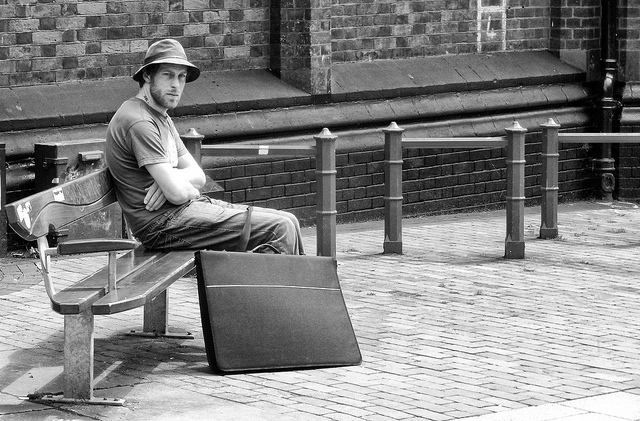I just watched a scary movie. I’m not going to say which one but, more than a couple of times I jumped or didn’t want to see whatever ghost or goblin I knew was about to pop up on screen. It’s those times when I realize I’m not nearly as tough as I think; I’m more vulnerable than I pretend. Not emotionally, of course, but actually.
In fact, there are a lot of scary and dangerous things out there: the flu, cancer, terrorists, North Texas drivers, heart disease and I could list a hundred more. If you consider all of the possibilities of your demise and, are afraid of them, it would make you a shut-in like Miss Havisham.
But there’s one danger that lurks in the shadows. It is one that is far worse than all of the others and, if left undetected, will affect every single aspect of your life without you even being aware of the cause.
It’s pride. Plain and simple pride.
Now the overtly proud person is easy to point out. The over the top stories, bragging, putting others down and (if in the early 2000’s) frosted tips. But covert pride is more difficult to see and, if it is to be dealt with, its camouflage has to be understood.
Why did you get mad at the guy who cut you off in traffic? Maybe because it was someone else imposing on your right of way.
Why do you have relationship difficulties? Maybe because you’re insisting that someone else come around to your point of view.
Why is your spiritual life stagnant? Maybe because what you really want is God’s blessings more than you want God.
Those aren’t the only questions to ask, but any of them have to be asked from a perspective of really wanting to find pride and deal with it. If not, you’ll probably just place the blame somewhere else and find another way to ignore your own role in the difficulties of your life.
To give perspective, pride is something I have a lot of trouble with.
This is not a finger pointing at you and yelling because that always causes a defensive posture. I’ve had to do some serious examination of how I look at the circumstances, events and stations in my life and ask if I’m taking responsibility or acting like a victim (as the actor and not the one acted upon).
The reason this stuff is important is because it’s impossible to be repentant and prideful at the same time. Humility and pride are exact opposites. Israel refused to repent as a whole because they were blind to the fact that they had anything in which to repent. They made excuses, pointed to their heritage for salvation, and thought that as long as they went through the motions everything would be okay. It was a heart issue and when God brought the hammer down most of Israel was in shock, not understanding why God would allow something terrible to happen to them.
Fast forward to now. Where are you making excuses? In what areas of your life are you going through the motions and thinking God will accept it? Where have you been shocked to see things fall apart and not understand how God could allow that to happen? If you’re prone to playing the victim, you probably just reacted with something like, “How could he suggest that poor, struggling people are responsible for their own circumstances?!”
I’ll admit, sometimes stuff just happens. You’re not responsible for uncontrollable things. What I am suggesting is that someone who is repentant and humble has a much clearer view of their own fallibility, while the prideful person is blind to their own responsibility.
Read the book of Philippians as sincerely as possible and look for two things: what humility really looks like and then the way Paul explains his dealings with good and bad circumstances. Then, ask yourself in how many ways you do the opposite. I did and it kicked me in the teeth, but it’s been a good thing. It might be what you need, too.
Photo credit: John Walker
